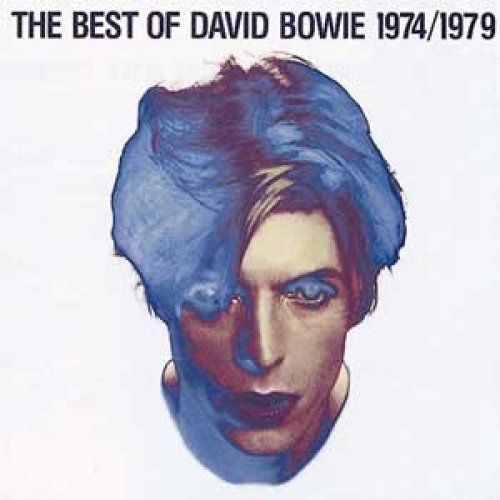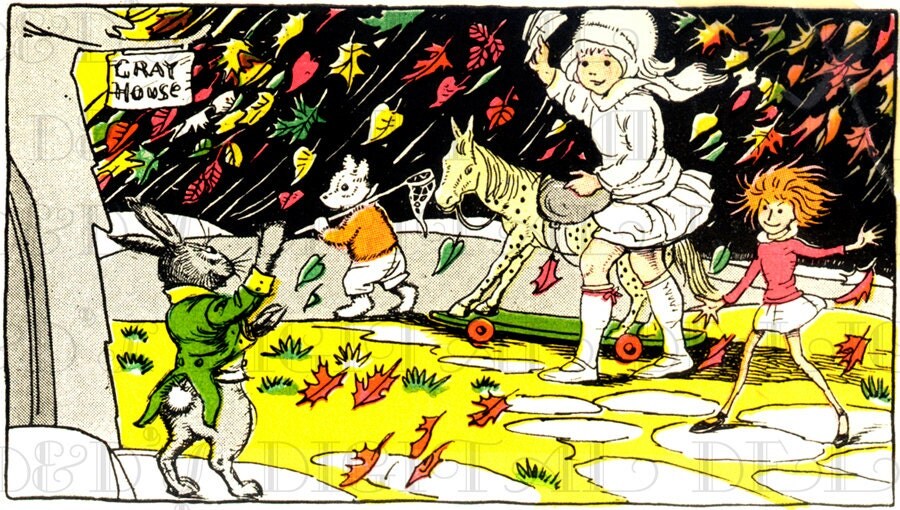The Platinum Collection, CD2: The Best of David Bowie 1974/1979 by David Bowie (EMI/Virgin 1998/2005)
A thoughtful collection of singles and outtakes from a period of bewildering change
Disc Two 1974/1979 Tracklist:
1. Sound and Vision (David Bowie) 3:02
2. Golden Years (single edit) (David Bowie) 3:28
3. Fame (David Bowie, Carlos Alomar, John Lennon) 4:13
4. Young Americans (single version) (David Bowie) 3:12
5. John, I'm Only Dancing (Again) (David Bowie) 6:59
6. Can You Hear Me? (David Bowie) 5:05
7. Wild Is the Wind (Dimitri Tiomkin, Ned Washington) (David Bowie) 5:59
8. Knock on Wood (Steve Cropper, Eddie Floyd) (live) (David Bowie) 2:58
9. TVC 15 (single version) (David Bowie) 3:52
10. 1984 (David Bowie) 3:25
11. It's Hard to Be a Saint in the City (Bruce Springsteen) 3:46
12. Look Back in Anger (David Bowie, Brian Eno) 3:06
13. The Secret Life of Arabia (David Bowie, Brian Eno, Carlos Alomar) 3:45
14. DJ (David Bowie, Brian Eno, Carlos Alomar) 4:02
15. Beauty and the Beast (David Bowie) 3:34
16. Breaking Glass (David Bowie, Dennis Davis, George Murray) 1:51
17. Boys Keep Swinging (David Bowie, Brian Eno) 3:18
18. 'Heroes' (single version) (David Bowie, Brian Eno) 3:33
Core Lineup:
David Bowie – vocals, guitar, saxophones, keyboards
Brian Eno – vocals, keyboards, synthesisers
Carlos Alomar – guitar
Dennis Davis – drums, percussion
George Murray – bass
Plus others, including David Sanborn, Willie Weeks, Andy Newmark, John Lennon, Earl Slick, Roy Bittan, Ricky Gardiner, Simon House, Roger Powell, Adrian Belew and Robert Fripp
1974 to 1979 was an inconsistent period for David Bowie (even by his erratic standards), coming as it did between his early seventies, Ziggy Stardust-defined, creative peak and his early eighties, dance-rock infused, commercial comeback. During this era he: surprisingly, and disappointingly, switched from glam rock to blue-eyed soul, although it gave him success in America; entered a period of transition from soul/funk to more expansive rock; made some well-received Krautrock-inspired experimental music in Berlin; and recorded a number of fascinating outtakes, remakes and singles. EMI/Virgin's The Platinum Collection is a 3x CD set, issued in 2005, which assembles mainly the singles from this six year-spell on the second disc, The Best of David Bowie 1974/1979, originally released as a single CD in 1998. The remaining compact discs are the first, known as The Best of David Bowie 1969/1974, originally released in 1997, and the third, The Best of David Bowie 1980/1987, which was put together for this set. The first CD of early seventies material, 1969/1979, is the most attractive and compelling for listening, but I have chosen the less likely second disc, covering the period 1974 to 1979, for my review.
Sound and Vision is a mainly instrumental piece with synthesizers to the fore and was one of the first tracks to reignite my interest in Bowie after some dull mid-seventies material. The shimmering guitars and synths counterpoint a thick sounding rhythm section and a 'lazy' saxophone solo from Bowie. Low (RCA 1977), the first of the Berlin trilogy, from whence it came, with Brian Eno's synthesizers and its Krautrock feel remains to this day one of my favourite David Bowie albums. Track two, Golden Years, is one of the aforementioned mid-seventies songs which put me off Bowie after a succession of strong singles from 1972 to 1974. His Anthony Newley inflected voice worked on the theatrically inspired Ziggy Stardust, but not with the soft soul feel of this unrepresentative track from Station to Station (RCA 1976), or the previous and more soulful album Young Americans (RCA 1975). Tracks three and four on this compilation, Fame and Young Americans (single version), are from Young Americans: Fame being an overtly funky collaboration with John Lennon and Young Americans a blue-eyed soul cut with Luther Vandross on backing vocals. Both remain unconvincing and are of little or no interest to this listener.
When musicians revisit their earlier songs it rarely works, but David Bowie recorded an unusually successful revision of John, I'm Only Dancing with the bracketed 'Again'. Paradoxically, part of the success was the decision to make a more soulful version than the original and blending it with European-style synthesizers - the intro is great. Initially recorded during the Young Americans sessions, it was not released until 1979 in two formats 12" and 7". Unfortunately, the version employed here is the 12", which at seven minutes is too long and the repetitious second half could have been completely excised from the final edit. Indeed, the second half was removed for the vastly improved 7", so the compilers missed an opportunity to incorporate an extremely rare and improved track. Can You Hear Me? was the b-side of Golden Years and is one of the better tracks from Young Americans.
Dmitri Tiompkins and Ned Washington's Wild is the Wind, recorded by Bowie in 1976 for Station to Station, but not released until 1981, represents his late-seventies/early eighties purple patch which also included Baal's Hymn and Cat People (neither within this album's remit). His singing is eerie, atmospheric and panoramic. David Bowie often sounded too close to the Rolling Stones for comfort and the abrasive cover of Eddie Floyd and Steve Cropper's Knock on Wood (David Live, RCA 1974) is an example. 1984 comes across as a cross between a Bobby Womack film theme and a seventies stage musical like Godspell, but oddly it works. Apparently it was intended for a musical based on Orwell's dystopian novel, but the Orwell estate were unhappy and it appeared instead on the Diamond Dogs (RCA 1974) LP. Ill-advisedly, it was released as a single only in the US and flopped. TVC16, a key part of Station to Station, sounds more interesting now than in 1976, when it was a disappointment (at least to me). With hindsight, it combines the futuristic imagery of Bowie's past (the subject of a dangerous TV set), his recent soul fixation (the 'girly' backing vocals) and the dense production of his future Berlin albums.
Bowie was an early contemporary to cover a Bruce Springsteen song with Growin' Up (not included here, but on the Rykodisc Pin Ups, EMI 1973/1990 and the 30th Anniversary Diamond Dogs, EMI/Virgin 1974/2004) and It's Hard to be a Saint in the City (which is included here) from the Greetings from Asbury Park, N.J. (Columbia 1973) album. Springsteen was present in the studio for the second effort, recorded during sessions in 1974 for Young Americans, but Bowie was unhappy with the results and the song was shelved, which is a shame as the singer unexpectedly draws parallels with his own earlier The Jean Genie. The recording was not completed until the following year, but remained in the vaults, until 1989, when it was exhumed for the Sound + Vision box set (Rykodisc/EMI/Virgin 1989). It's Hard to be a Saint in the City was not released as a single to my knowledge.
Look Back in Anger, a collaboration with Brian Eno, this time from Lodger (RCA 1979), is a full-on rock track with a Kinks-style chorus and enlivened by some funky guitar playing from Carlos Alomar. The Secret Life of Arabia is a terrific track from 'Heroes' (RCA 1977), the second of the Berlin trilogy, but is another song on this CD that was not released as a single as far as I can ascertain. DJ from Lodger, the final Berlin album and not recorded in Berlin, with Adrian Belew on guitar sounds like Talking Heads, while Beauty and the Beast from 'Heroes', with Robert Fripp on guitar is more original and catchier. Both tracks are over recorded but their respective albums sold well. Short and strange best describes Breaking Glass, taking us back to Low, with its blues guitar riff, Eno's buzzing synthesizers weaving in and out and weird descriptive lyrics. Somehow, a longer live version from Stage (RCA 1978) was a hit single. A last astonishingly successful track from Lodger, Boys Keep Swinging, is a mess, while the title track from 'Heroes', is relentlessly turgid in its build up of layers of noise.
David Bowie's early glam rock period was his most fruitful and enjoyable and the early eighties brought him back to his best for a while. A number of songs in the mid to late-seventies matched his best during these periods and The Best of David Bowie 1974/1979 compilation is as good as it is possible to find at the moment. It is worth buying with the remainder of The Platinum Collection, as it sensibly gathers in one place his hit singles and adds a few rarities. For the casual fan, CD2 is probably not worth getting on its own. Dedicated followers, who can afford to do so, will be collecting the Rykodisc series of original albums with bonuses.


















 Linear Mode
Linear Mode
